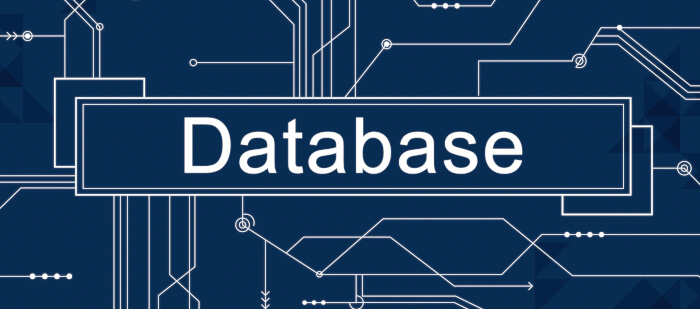Last Updated on June 14, 2024
ArangoDB is a scalable graph database system to drive value from connected data, faster.
ArangoDB combines the analytical power of native graphs with an integrated search engine, JSON support, and a variety of data access patterns via a single, composable query language.
This is free and open source software. There is a commercial edition available.
Features include:
- Graph Database: Native support for storing and querying graphs comprised of vertices and edges. You can model complex domains because edges are documents without any restrictions in complexity.
- Document Database: A modern document database system that allows you to model data intuitively and evolve the data model easily. Documents can be organized in collections, and collections in databases for multi-tenancy.
- Data Format: JSON, internally stored in a binary format invented by ArangoDB called VelocyPack.
- Schema-free: Flexible data modeling without having to define a schema upfront. Model your data as combination of key-value pairs, documents, or graphs – perfect for social relations. Optional document validation using JSON Schema (draft-4, without remote schema support).
- Data Storage: RocksDB storage engine to persist data and indexes on disk, with a hot set in memory. It uses journaling (write-ahead logging) and can take advantage of modern storage hardware, like SSDs and large caches.
- Computed Values: Persistent document attributes that are generated when documents are created or modified, using an AQL expression.
- Multiple Environments: Use ArangoDB as a managed service, in your own cloud, or on-premises. Develop and test with ArangoDB on Linux, macOS, and Windows, and run it in production on Linux. ArangoDB is available for 64-bit ARM chips on macOS and Linux as well as for the x86-64 architecture.
Website: arango.ai
Support: GitHub Code Repository
Developer: ArangoDB, Inc.
License: Apache License 2.0
ArangoDB is written in C++. Learn C++ with our recommended free books and free tutorials. Learn JavaScript with our recommended free books and free tutorials.
Return to Document-Oriented Databases | Return to Graph Databases | Return to Key Value Stores
| Popular series | |
|---|---|
| The largest compilation of the best free and open source software in the universe. Each article is supplied with a legendary ratings chart helping you to make informed decisions. | |
| Hundreds of in-depth reviews offering our unbiased and expert opinion on software. We offer helpful and impartial information. | |
| The Big List of Active Linux Distros is a large compilation of actively developed Linux distributions. | |
| Replace proprietary software with open source alternatives: Google, Microsoft, Apple, Adobe, IBM, Autodesk, Oracle, Atlassian, Corel, Cisco, Intuit, SAS, Progress, Salesforce, and Citrix | |
| Awesome Free Linux Games Tools showcases a series of tools that making gaming on Linux a more pleasurable experience. This is a new series. | |
| Machine Learning explores practical applications of machine learning and deep learning from a Linux perspective. We've written reviews of more than 40 self-hosted apps. All are free and open source. | |
| New to Linux? Read our Linux for Starters series. We start right at the basics and teach you everything you need to know to get started with Linux. | |
| Alternatives to popular CLI tools showcases essential tools that are modern replacements for core Linux utilities. | |
| Essential Linux system tools focuses on small, indispensable utilities, useful for system administrators as well as regular users. | |
| Linux utilities to maximise your productivity. Small, indispensable tools, useful for anyone running a Linux machine. | |
| Surveys popular streaming services from a Linux perspective: Amazon Music Unlimited, Myuzi, Spotify, Deezer, Tidal. | |
| Saving Money with Linux looks at how you can reduce your energy bills running Linux. | |
| Home computers became commonplace in the 1980s. Emulate home computers including the Commodore 64, Amiga, Atari ST, ZX81, Amstrad CPC, and ZX Spectrum. | |
| Now and Then examines how promising open source software fared over the years. It can be a bumpy ride. | |
| Linux at Home looks at a range of home activities where Linux can play its part, making the most of our time at home, keeping active and engaged. | |
| Linux Candy reveals the lighter side of Linux. Have some fun and escape from the daily drudgery. | |
| Getting Started with Docker helps you master Docker, a set of platform as a service products that delivers software in packages called containers. | |
| Best Free Android Apps. We showcase free Android apps that are definitely worth downloading. There's a strict eligibility criteria for inclusion in this series. | |
| These best free books accelerate your learning of every programming language. Learn a new language today! | |
| These free tutorials offer the perfect tonic to our free programming books series. | |
| Linux Around The World showcases usergroups that are relevant to Linux enthusiasts. Great ways to meet up with fellow enthusiasts. | |
| Stars and Stripes is an occasional series looking at the impact of Linux in the USA. | |

